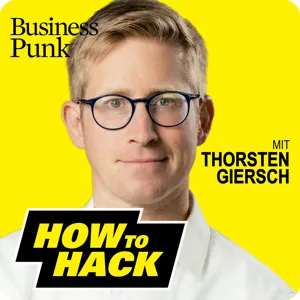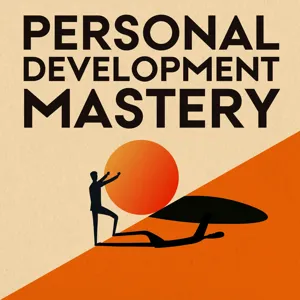Podcast Summary
Exploring Squarespace Insights and Ferguson's Expertise for Businesses and Home Projects: Squarespace offers Insights analytics for business growth, while Ferguson provides expertise for successful home projects. Try Squarespace free, save 10% with code STUFF, and check out Ferguson for assistance with product selection and coordination.
Both Squarespace and Ferguson offer valuable solutions for businesses and home projects respectively. For those using Squarespace, Insights analytics can help grow businesses by identifying top keywords, popular products, and effective channels. New users can try it for free and save 10% with the offer code STUFF. At Ferguson, the team provides expertise in bath, kitchen, and lighting products, among others, to help make every project successful. Whether you're a homeowner, designer, or remodeler, they can assist with product selection, orders, and delivery coordination. Don't miss the upcoming Science Channel shows, The Road to Pumpkin Chunkin' and Pumpkin Chunkin' itself, airing on Thanksgiving night. And finally, while some may claim to remember being born, it's a common myth, and there's no scientific evidence to support it.
The Misconception of Infant Amnesia: Despite the belief that infants can't form memories, recent theories suggest that childhood amnesia may be due to brain development and memory repression
For many years, it was believed that infants couldn't form memories due to their underdeveloped brains. However, this theory has been challenged in recent decades with the concept of childhood amnesia. Sigmund Freud, among others, proposed that we repress traumatic memories, particularly those of a sexual nature, to protect the unconscious id. While most people can't recall concrete memories before the age of three, some do have early recollections. Our inability to remember our time in the womb or early childhood might be due to the brain's developmental pace and potential memory repression. This discussion foreshadowed the topic of primal therapy, a therapeutic approach that aims to uncover and resolve unconscious memories.
Early Childhood Memories May Not Be as Clear as We Think: Our memories, even from early childhood, aren't always accurate and can include both conscious and unconscious recollections.
Our earliest memories may not be as clear-cut as we think. The speaker shared an experience from their childhood, recalling an incident where they put their arm through a storm window and remember bleeding. However, they couldn't recall the exact age they were at the time. They noted that this memory is not accompanied by any family photos, which can sometimes serve as cues for false memories. Research suggests that children as young as three months old can form memories, but they may not last long-term. Additionally, we have both explicit and unconscious memories. Explicit memories are conscious and can be recalled deliberately, like remembering a specific event or learning how to play an instrument. Unconscious memories, on the other hand, are automatic and influence our behavior without us realizing it, like remembering how to breathe or ride a bike. The speaker's early memory, though vivid, may be an unconscious memory that has stayed with them over the years. It's a reminder that our memories are not always reliable and that there may be more to our unconscious mind than we realize.
Forming Memories Through Neuronal Connections: The more we experience and think about something, the stronger the corresponding neural connections become, enhancing our memory of it.
Our brains create and store memories through the formation of synapses between neurons. Episodic memory, which allows us to remember specific events and experiences, develops over time. Unconscious memories, like how to play the piano, are innate and not dependent on episodic memory. The more we think about or experience something, the stronger the corresponding neural connections become, enhancing our memory of it. For example, the scent of a gardenia or the taste of milk steak can evoke strong memories due to repeated exposure and association. Our brains categorize and file away memories, and the more we recall a memory, the stronger it becomes.
Safe Social Media for Kids and Custom Website Building: Zigazoo provides a safe social media platform for kids with human moderation and real, verified users. Squarespace's Fluid Engine offers custom website building with flexible designs, asset library, and drag-and-drop technology.
Zigazoo provides a safe and fun social media experience for kids, while Squarespace's Fluid Engine offers unbreakable creativity for building websites. Zigazoo, the world's largest and safest social media network for kids, allows them to upload content, engage with friends, and try out trends without commenting or text messaging. Everything is human-moderated and community members are real, verified kids. Squarespace's Fluid Engine, on the other hand, makes it easier than ever to create custom websites with best-in-class templates and drag-and-drop technology. You can sell merchandise, access an asset library, and choose from flexible designs for every category and use case. Regarding memory, the brain encodes and consolidates information, and retrieving it later involves retracing the original synapses that led to the memory. The more you use a memory, the more visible and easily accessible it becomes. Contrary to earlier beliefs, babies can encode memories effectively. A study involving mobile-using infants showed that they could remember objects associated with the mobile even after a delay. In essence, Zigazoo offers a fun and safe social media experience for kids, while Squarespace's Fluid Engine empowers users to create unique and custom websites. Both platforms cater to their respective needs effectively.
Infants learn through experience and memory development: Infants learn through repetition and association, developing implicit memory for basic survival instincts and explicit memory for timeline-based experiences
Infants learn through experience and gradual memory development. An early study demonstrated this by tying ribbons to a mobile above babies' heads, which they found would encourage infants to kick their legs to make the mobile move. This repetition helped babies associate the action with the result, leading to a learned behavior. This study also introduced the concept of implicit memory, which is a type of memory we're born with and is controlled by the cerebellum. It's responsible for our basic survival instincts, such as recognizing hunger or the need for warmth. Implicit memory doesn't rely on specific events in time and stays with us throughout our lives. Explicit memory, on the other hand, begins when we can place experiences in a timeline and requires cues for recall. Overall, these findings highlight the importance of experience and memory in shaping early development.
Language and memory formation in children: Children's ability to use language to describe experiences plays a crucial role in forming memories. Understanding of events in relation to each other helps form sense of self and personal identity, which children do not fully develop until around age two. Concrete world understanding also begins around this age.
Language development and memory formation are closely linked in children, as revealed in various studies. For instance, a 2004 study found that children who knew the words to describe an event at the time it happened were unable to recall it later after learning the appropriate words. This suggests that our ability to use language to describe experiences plays a crucial role in forming memories. Additionally, context is important in early memory development, with preschool-aged children able to recall sequential order of events but lacking a clear sense of a timeline of their lives. This understanding of events in relation to each other helps form our sense of self and personal identity, which children do not fully develop until around age two. Furthermore, children's understanding of the concrete world around them also begins to develop around this age. Overall, these findings highlight the intricate relationship between language, memory, and identity in childhood development.
The Impact of Vision and Culture on Existence and Memory: Our perception of existence is influenced by experiences, people, and field of vision. Westerners focus on explicit memory, while Easterners prioritize implicit. Detailed storytelling and regular napping enhance memory formation. A kid-safe social media platform, Zigazoo, fosters creativity and learning.
Our perception of existence and memory are closely linked to our experiences and the people around us. The discussion highlighted how our field of vision can influence our sense of existence, and how Westerners and Easterners differ in their memory focus. Additionally, the importance of detailed storytelling and regular napping in memory formation was emphasized. A social media platform for kids called Zigazoo was introduced, which allows children to create content in a safe and fun environment. Overall, the conversation underscored the significance of memory, storytelling, and safe digital spaces in shaping our experiences and understanding of the world.
Exploring the sharing economy and monetizing unused assets: Airbnb lets you rent out homes or extra spaces, Zigazoo is a platform for kids to share videos, and Canva offers tools for creating professional presentations - all part of the sharing economy and effective resource utilization.
There are various opportunities to make extra money by sharing your resources, be it a spare room or your creativity. The sharing economy, represented by platforms like Airbnb and Zigazoo, offers a way to monetize unused assets and even contribute to a community. For instance, Airbnb allows hosts to rent out their homes or extra spaces during events or vacations. On the other hand, Zigazoo is a social network for kids to share their videos, providing a safe and moderated space for creativity and learning. Additionally, tools like Canva offer an efficient solution for creating professional presentations for various workplace needs. These examples demonstrate the potential value of sharing and utilizing resources effectively.






![Airbnb CEO: “IT WAS SO DARK WE NEARLY DIED!”. I Was Lonely, Deeply Sad & Wanted To Be Loved! [INSPIRING!] Brian Chesky](https://www.podcastworld.io/podcast-images/the-diary-of-a-ceo-with-steven-bartlett-ihgysuxh.webp)